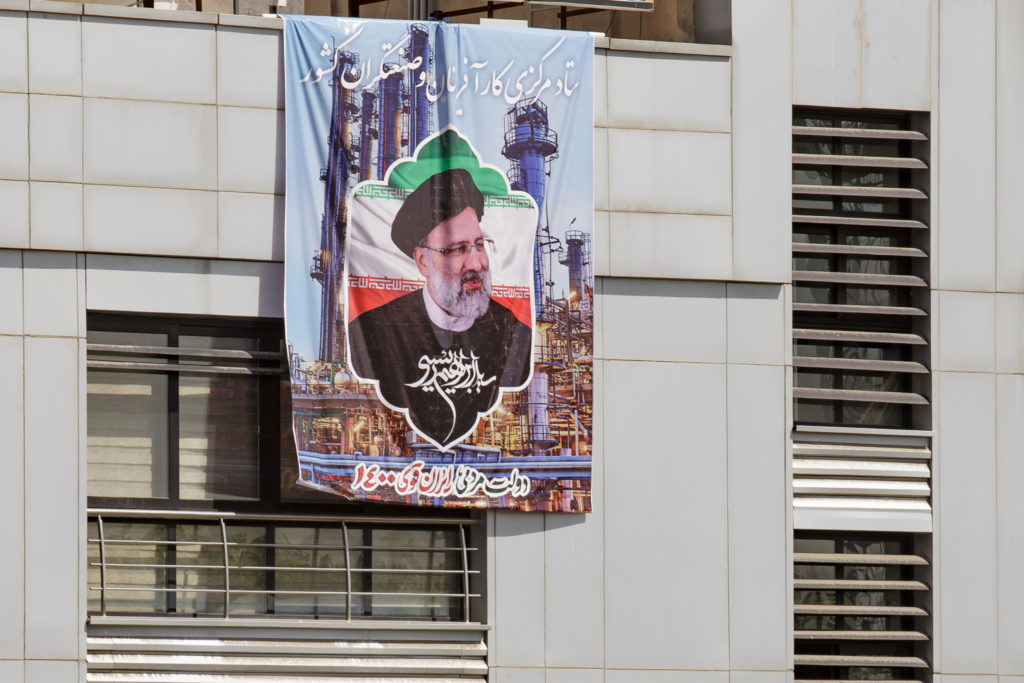Australia/Israel Review
Iranian regime drops all pretences
Jun 28, 2021 | Eyal Zisser

The fake presidential election in Iran on June 18 predictably resulted in a victory for Ebrahim Raisi, the most radical of all the possible candidates. In light of his views, and mainly his murderous track record as someone who sent thousands of political dissidents to their deaths as Teheran’s chief prosecutor in the 1980s, the world could end up wishing for any one of his predecessors, even one as detestable as the Holocaust denier Mahmoud Ahmadinejad.
The reason Raisi was elected – and was essentially allowed to run in the first place, unlike the 600 or so other candidates who were disqualified and erased from the candidate list – is his absolute loyalty to the Supreme Leader, Ayatollah Ali Khamenei. The frail, 82-year-old leader doesn’t want any surprises in the final stretch of his life. Raisi is often mentioned as the possible next-in-line to Khamenei, which essentially means that Iran didn’t just elect a new president but a successor to the Supreme Leader.
Regardless, the regime in Teheran chose to remove all its masks by eschewing a smiling, affable figurehead to mislead the international community, as it has opted for in the past. Henceforth, Iran will be speaking in one blunt, extremist, clear voice.
The majority of Iranians chose not to partake in the spectacle put on by the regime, an indication of their frustration and distress and mainly their deep lack of trust in the system and their ability to change it in any way. It’s incredible to think that just over 40 years ago, throngs of Iranian youths took to the streets in protest against the Shah’s regime, in the hope of fostering change and ensuring a better future for their country. Their revolution was hijacked by religious clerics, who have since ruled the country with an iron fist.
Most Iranians are far worse off now than they were under the Shah. The Ayatollah regime, a failed and corrupt entity that has poured the country’s resources into its ballistic missile and nuclear programs, has wrought upon Iranians a life of poverty, anguish, and even hunger. Iran’s troubles were exacerbated by the pummelling administered by the Trump Administration. While the measures it implemented weren’t enough to topple the regime, they undoubtedly shortened its lifespan, similar to Ronald Reagan’s measures that led to the eventual collapse of the former Soviet Union.
The choice of Raisi as president, however, is less important than the US Administration’s expected choice in favour of a nuclear deal with Iran. It never ceases to amaze how, when a force of unadulterated, radical evil finds itself on the ropes, someone always comes along to lend it a hand and pick it back up.
The nuclear deal is a lifeline for a drowning regime. Removing sanctions and welcoming Iran back into the family of nations will give it a boost and help it rehabilitate its sputtering economy. We can rest assured that the expected nuclear deal will fail to rein in the regime’s support for terror and subversive activities. In fact, it will have the exact opposite effect: it will encourage it to hasten its march toward a nuclear bomb and increase its meddling across the region.
The regime’s end will inevitably come; it is simply the way of the world. Unfortunately, the emerging nuclear deal between the US and Iran won’t bring us any closer to that day, rather, it will only give the regime more oxygen.
Prof. Eyal Zisser is the Vice Rector of Tel Aviv University and the holder of the Yona and Dina Ettinger Chair in Contemporary History of the Middle East at that University. © Israel Hayom (www.israelhayom.com), reprinted by permission, all rights reserved.
Tags: Ebrahim Raisi, Iran






